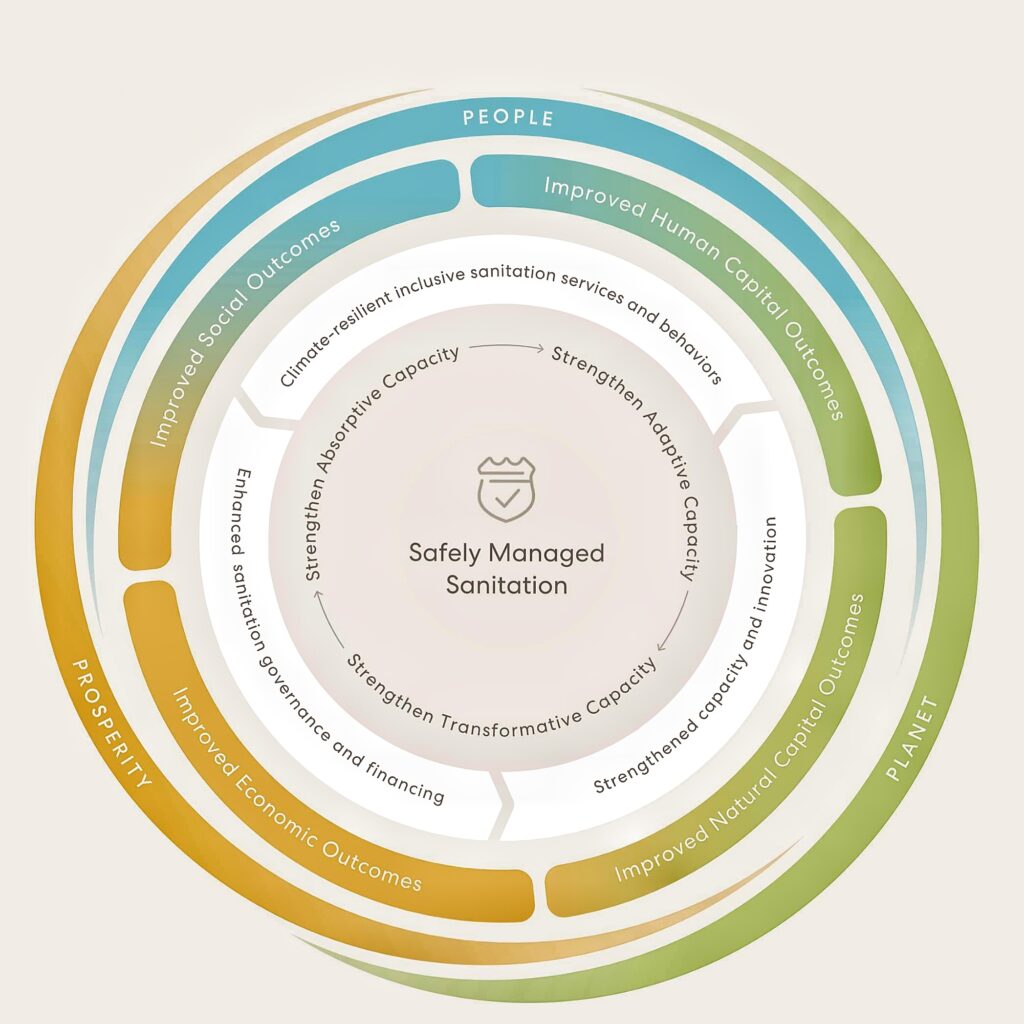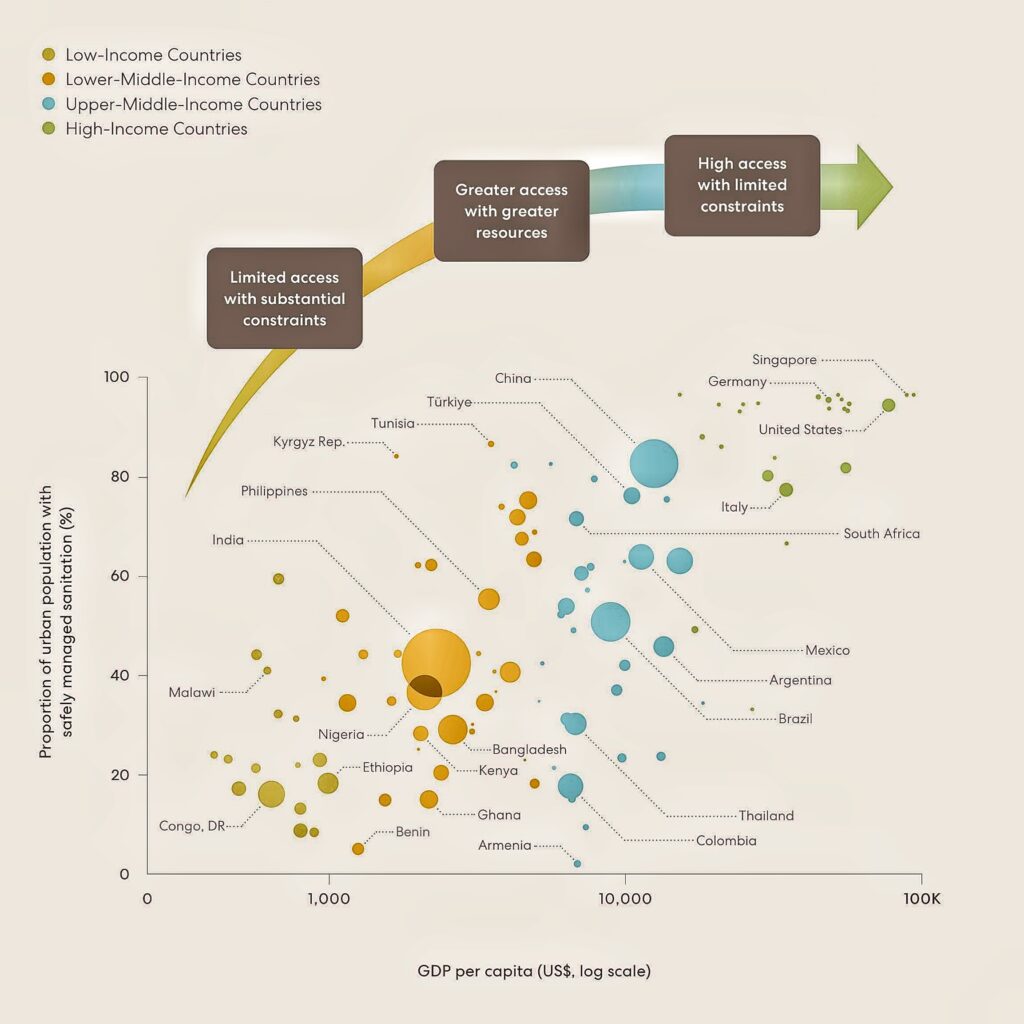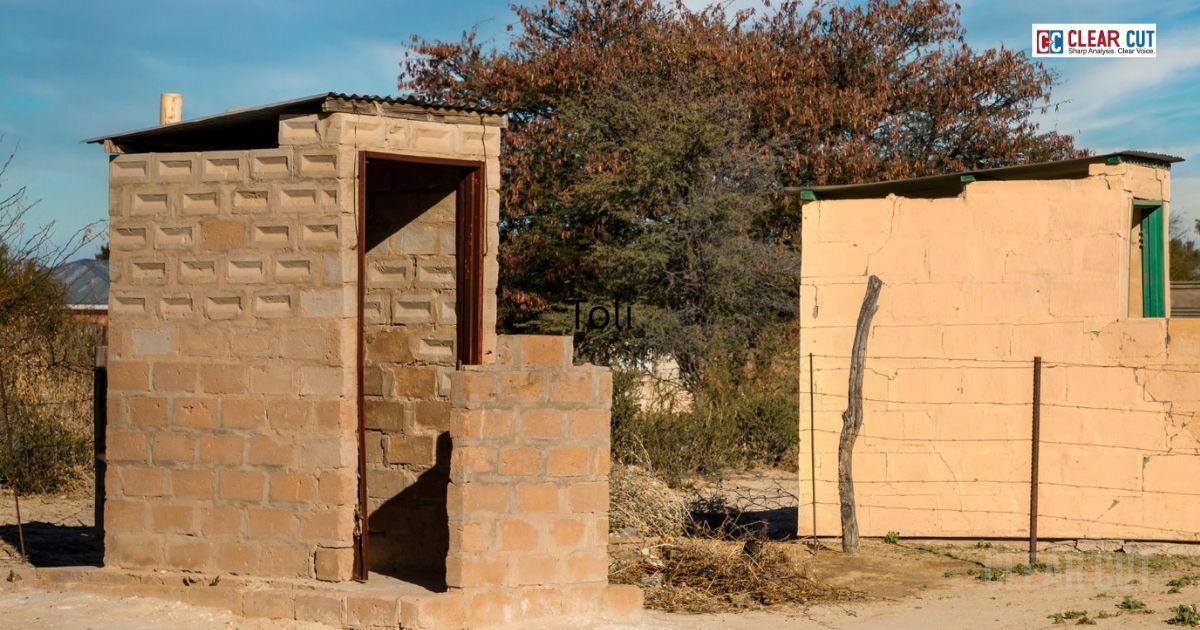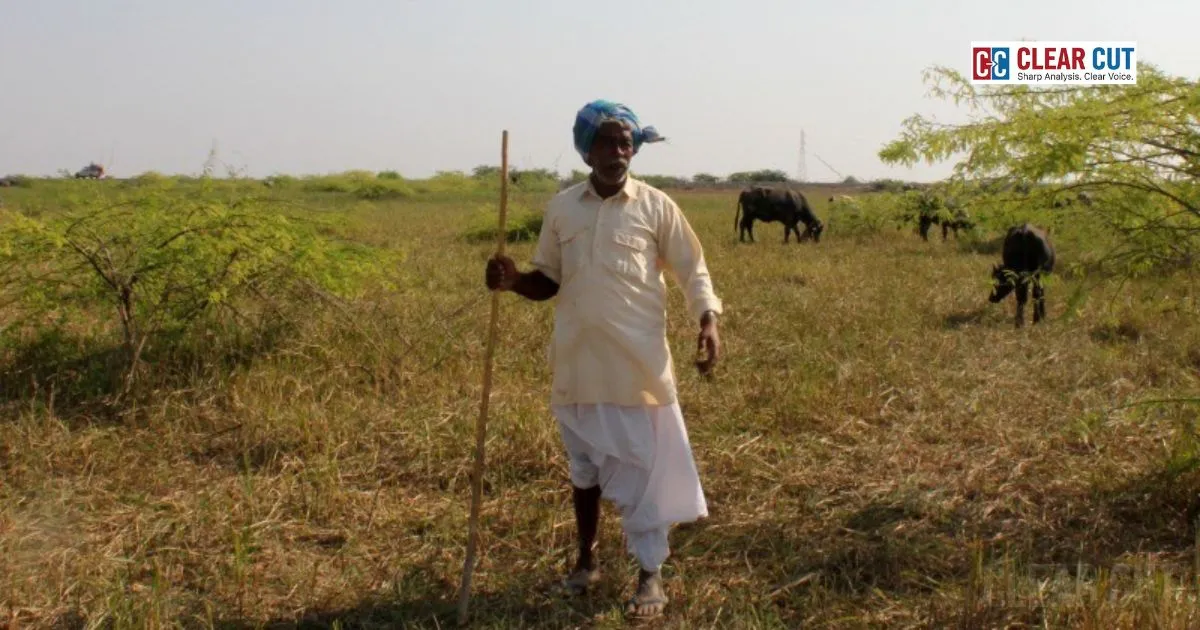Photo Credit: Paresh Kumar
Clear Cut Climate Desk
New Delhi, UPDATED: Oct 03, 2025 01:13 IST
Written By: Paresh Kumar
WASHINGTON, D.C: Billions lack safe toilets. Floods and droughts wreck what’s left. Climate change turns a basic need into a deadly trap. A new World Bank report sounds the alarm. It’s time to rethink sanitation. Or watch cities drown in filth and debt.
The report, The Global Sanitation Crisis: Pathways to Urgent Action, dropped this year. It comes from the Bank’s Global Department for Water. Lead authors Sanyu Lutalo, Nishtha Mehta, and Gustavo Saltiel steered the effort. Core team members Sean Nelson, Leonie Hyde-Smith, Martin Gambrill, and Pavel Luengas Sierra crunched the numbers. Global Director Saroj Kumar Jha penned the foreword. He calls it a “call to action.” Peer reviewers like Prof. Juliet Willets from the University of Technology Sydney sharpened the edges. Yogita Mumssen and Yitbarek Tessema guided strategy. Contributors from Arup International and Water and Sanitation for Urban Populations (WSUP) added case studies.
Sanitation isn’t just plumbing. It’s life. Globally, 3.5 billion people miss safely managed services. That’s half the world. At current speeds, SDG 6.2—universal access by 2030—stays a dream. Progress must speed up fivefold. In Africa, it’s 23 times faster for safe systems. Climate hits hardest. Floods overflow sewers. Droughts dry up treatment. Rising seas salt the soil. Extreme heat breeds disease.
The report spotlights a “triple burden.” Poverty. Climate risk. Shoddy sanitation. It strikes one-third of urban folks in low- and middle-income countries (LMICs). Picture 919 million facing water stress and no toilets. Or 1.1 billion—more than all of North and South America combined—bracing for floods without safe waste disposal. Hotspots? Bangladesh, Philippines, Nigeria. In Dhaka slums, 80% of poor face the full trio. Manila’s informal settlements? Same story. Lagos? Over half vulnerable.
Why care? Sanitation shapes everything. Health first. Poor systems spread cholera, diarrhea. They stunt kids. Trap women in endless chores. Cut school days—girls hit hardest. Each year, 1.4 million die from unsafe water and waste. Economic toll? Massive. In LMICs, bad sanitation shaves 1-2% off GDP. But flip it. Invest $1 in water and sanitation. Get $7 back in Africa alone. Boost GDP by 5%. Add $200 billion yearly. Jobs? Every $1 million invested creates 40 roles. From pit emptiers to plant techs.
Planet pays too. Sanitation guzzles energy. Spews methane—worse than CO2 short-term. It breaches six of nine planetary boundaries. Freshwater depletion. Climate change. Nutrient overload. Ocean acidification. Land grabs. Novel chemicals. Untreated waste pollutes rivers. Kills reefs. The report urges a fix. Turn waste to wealth. Circular economy style. Enter the framework. A simple diagram.

Photo Credit: World Bank 2025
Safely managed, climate-resilient sanitation at center. Absorptive capacity absorbs shocks. Adaptive tweaks future-proofs. Transformative overhauls rethink the chain. Outcomes? Healthier people. Cleaner water. Jobs and growth. Less emissions. It links to SDGs on health, cities, gender, climate.
Policy gaps fuel the vicious cycle. Weak rules. No cash. Siloed sectors. Emissions rise. Services fail. The report breaks it. Three objectives. First: Safeguard access. Mandate resilient designs. Enforce standards. Second: Cut emissions. Tax polluters. Reward recovery. Third: Build skills. Train workers. Innovate tech. Like container-based systems in Kenya. Or nature-based filters in Cape Town.
Implementation? Prioritize by risk. Use GDP gaps and sanitation deficits.

Target vulnerable first—slum dwellers, women, kids. Cities lead. Utilities step up. But small providers stay key. Finance it. Blend public funds with green bonds. Tap climate pots like Green Climate Fund. Results-based pay. In Chennai, recycled water saves millions. Durban reuses wastewater. Sanivation in Uganda turns sludge to briquettes.
Hits and hurdles. Success stories shine. But scaling lags. Politics stall reforms. Cash shortfalls bite. The report nods to partners. Gates Foundation. Global Water Partnership. They back GWSP, the fund behind this work.
Jha sums it. “Shift from vicious to virtuous.” Lutalo adds: “Resilient sanitation is development in hostile times.” Willets praises the systems view. “It’s not silos. It’s synergy.”
The math screams invest now. $114 billion needed yearly for universal access. Delay costs more. Lives. Livelihoods. Livable cities.
World leaders, take note. Cities, act local. Funders, unlock green cash. Sanitation isn’t charity. It’s smart money. $7 return on $1? That’s a no-brainer. Turn the crisis to opportunity. Before the floods rise higher.




